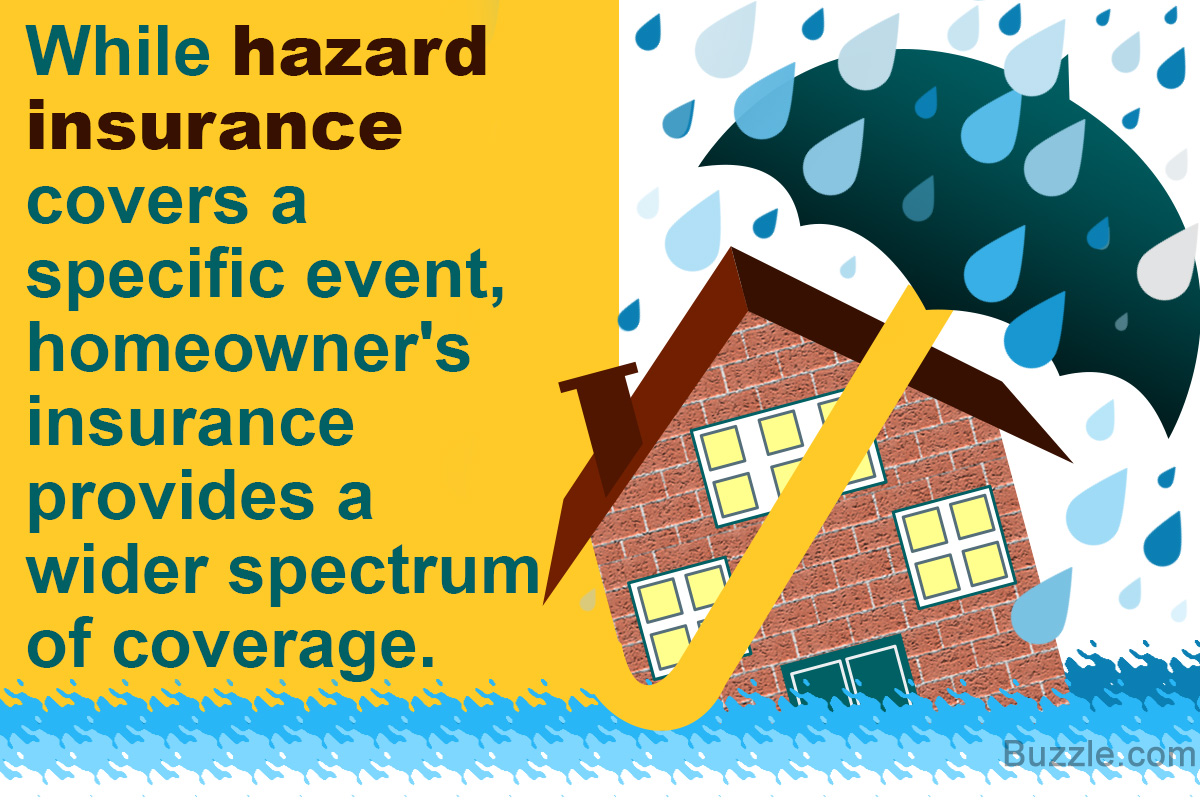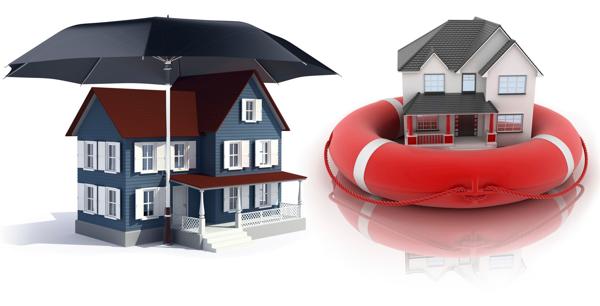
With little difference between the two types of insurance, many people wonder if hazard insurance is the same as homeowner’s insurance.
Tip
Some comprehensive homeowner policies offer coverage for certain natural hazards. Hence, know what all comes under your policy before spending money on hazard insurance.
Many people often find it difficult to understand the difference between hazard and homeowner’s insurance. Your homeowner’s policy contains hazard coverage; however, you will have to get additional hazard insurance for specific natural disasters and theft. Not all events will be covered under your homeowner’s policy especially if there is a high-risk hazard; hence, you will have to undertake a special policy for some hazards. For example, if you live in an area prone to earthquakes like California, it being a high-risk hazard area, it will not come under the umbrella of your policy, and you will have to seek a special hazard insurance cover for the same. This insurance covers damage inflicted to your property due to natural hazards like fire, wind, earthquakes, vandalism, etc. Here is a detailed comparison between the two, which will help you in understanding their concepts in a better way.
Hazard insurance
It protects a homeowner against damage to property caused by natural disasters like storms, earthquakes, fire, floods, theft, etc. The property owner will have to take hazard insurance against any of the hazards that may not be covered under the homeowner’s insurance.
Homeowner’s insurance
A homeowner’s insurance policy is a package insurance that helps protect the homeowner’s property, belongings, liability, etc. Many times, this insurance does not cover natural disasters, especially if they occur in a high-risk area. For example, if you stay in Florida, your policy may not protect your house against floods.
| Hazard insurance | Homeowner’s insurance |
| Basic Difference | |
| It will cover your property, but not cater to the contents of your house. | A comprehensive homeowner’s policy with a hazard coverage will cover all your belongings along with the property. |
| Rider | |
| In most cases, hazard insurance policy (for the hazard not covered) will be added as a rider to your existing homeowner’s policy. | Hazard policy can be a part of your comprehensive homeowner’s policy, but not vice versa. |
| Claim | |
| The compensation of the claim will be based solely on the replacement cost. | The claims for this insurance type are dependent on both replacement cost as well as the actual cost of the property. |
| Premium Calculation | |
| Premium will be calculated based on age of the building, risk of natural disasters, value of the property, location of property, etc. | Premium depends on the replacement cost, losses in the past, and additional floaters or riders attached with the policy. |
| Comprehensive Coverage | |
| It only covers physical damage caused to the property due to the natural hazard or theft. It does not cover the owner’s personal liability or accidents caused on the premises. | This insurance has a wider spectrum of coverage, which includes vandalism, medical expenses for injury to others on your property, personal liability coverage, loss of use of home, legal costs for an accident on your premises, etc. |
| High-risk Hazard Areas | |
| If you stay in a high-risk hazard area―for example: in an area with higher risk of floods―you will have to get a separate hazard policy for the same. | In all probability, this policy will not cover the perils in high-risk areas like earthquakes, hurricanes, war, floods, and other ‘Acts of God’. |
| Additional Benefits | |
| Your basic hazard insurance policy may not cover your relocation expenses in case of loss of use or repairs, etc. | In most cases, this policy will cover relocation expenses, loss of use or repairs, etc. |
Mortgage lenders require you to get at least minimal hazard insurance on your property. Hence, consult an insurance agent if you are planning to avail a loan. Remember, hazard insurance specifically protects your property against a natural hazard or theft for which you have sought separate insurance. Apart from damage to property, if your dog bit someone on your premises or you lost your friend’s suitcase when you were in your house, your homeowner’s insurance will pay for it. This is because, apart from damage to property, it also covers the personal liability of the owner, property fixtures, and accidents on the premises.
Our Verdict
If your homeowner’s insurance does not cover certain hazards that can cause losses due to natural disasters in your area, then it is highly advisable that you get a separate hazard insurance cover for the same.


